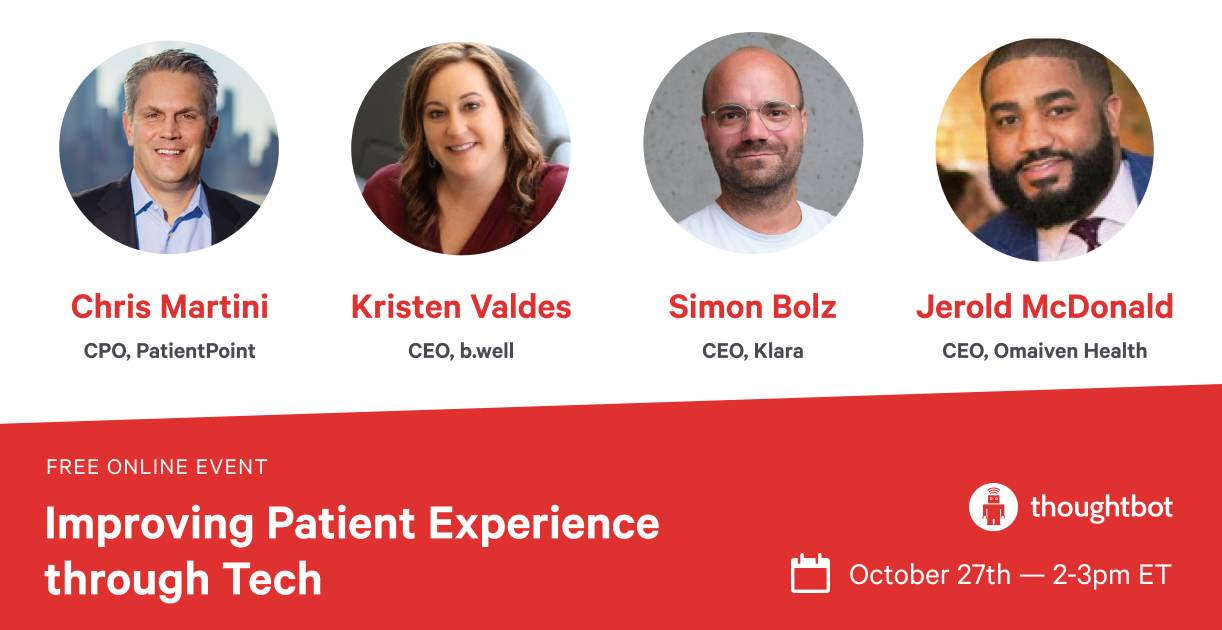There are some incredible new applications of software to help people not only communicate with clinicians once they have a health issue, but proactively manage and track their health. For healthcare organizations who were resistant to telehealth and other patient experience solutions, 2020 has been a forcing mechanism for adoption.
On the flipside, are some of these tech applications overhyped or shoehorning in tech where it isn’t needed? We’re going to ask some health tech innovators how they view the patient experience landscape and what’s on the horizon.
Join us for the next expert panel in thoughtbot’s free health tech event series:
Tuesday, October 27th
2 - 3pm ET
I’ll be moderating this panel, and can tell you that my prep calls with these panelists have left me incredibly thoughtful and inspired. I’m looking forward to an animated conversation because they definitely hold a number of different viewpoints from one another. Thanks to our friends at Health Tech Austin for helping us pull these amazing healthcare leaders together.
Our patient experience expert panel
- Simon Bolz, co-founder and co-CEO, Klara: Google-backed Klara is improving communication between patients and their doctors’ offices with an end-to-end virtual care platform. A key insight from my chat with Simon:
96% of all patient complaints are actually about communication and customer service.
- Kristen Valdes, founder and CEO, b.well: Former United Healthcare VP, Kristen is now focused on creating personalized health journeys with b.well. Kristin shared with me:
2020 was the most consumer friendly regulatory year in history. We saw about 10 years of telehealth advancement.
- Jerold McDonald, co-founder and CEO, Omaiven Health: Omaiven Health leverages AI and automation to provide deeper engagement-building trust and empathy with patients. Jerold is passionate about how bias shows up in tech, especially health tech:
We need to be asking ourselves ‘what are the unintended consequences of our work’.
- Chris Martini, CPO, PatientPoint: PatientPoint is focused on making every doctor-patient engagement better with a suite of digital solutions. Chris is seeing a lot of doctors still resistant to telehealth, and an opportunity to focus on in-office engagement:
If you can educate patients right before their consultation, they get better outcomes.
What’s next for patient experience tech?
I hope you’ll come by our live event on October 27th.
Registering will also get you access to the recording if you can’t make it. We’ll be asking the panelists questions that you submit via the registration form, so be sure to keep them on their toes!

